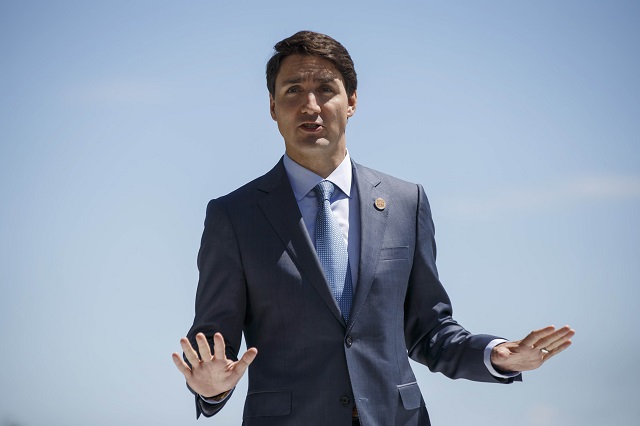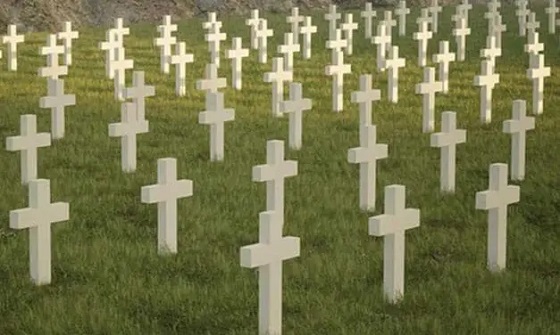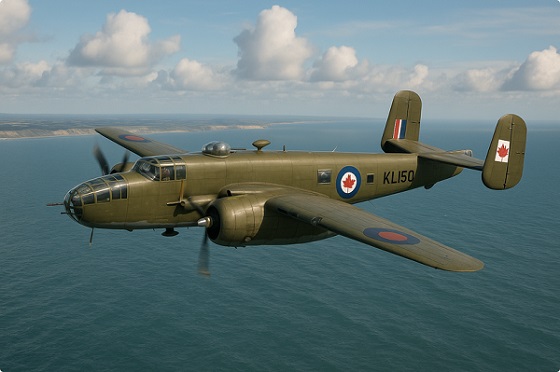Opinion
Trudeau’s home heating oil exemption shows politics trumps real affordability

From the Canadian Taxpayers Federation
Author: Jay Goldberg
It turns out desperate pigs really do fly.
In a colossal policy reversal, Prime Minister Justin Trudeau announced a suspension of the carbon tax on home heating oil for the next three years. But that one concession favours one region over others and is far from enough to protect Canadians from the brutal realities of the carbon tax’s impact on family budgets.
Trudeau’s carbon tax concession was specifically targeted at Atlantic Canada because it deals with home heating oil. Forty per cent of Atlantic Canadian households use heating oil to heat their homes. Compare that to just two per cent of Ontario households.
Atlantic Canada had a special deal with Trudeau until this summer. The federal government gave Atlantic provinces permission to exempt home heating oil from their carbon taxes.
But the region’s special deal ran out in July, with full federal carbon tax pricing kicking in on Canada Day, including on heating oil.
With winter fast approaching, taxpayers in Atlantic Canada recognized the massive tax hike they were about to face just to stay warm.
Last winter, Atlantic Canadian households paid no carbon tax on their home heating oil bill. This winter, the average household was poised to spend $272.
Public opinion polls of late show Atlantic Canadians are preparing to vote with their chequebooks. The anti-carbon tax Conservatives are gaining steam.
The Conservatives forced a vote in the House of Commons on repealing the carbon tax earlier this month. One Liberal MP from Newfoundland and Labrador had the courage to stand up for his constituents and vote to repeal the tax.
Avalon MP Ken McDonald was crystal clear in articulating why he voted the way he did.
“I’ve had people tell me they can’t afford groceries,” McDonald said. “They can’t afford to heat their homes. You can’t make it more expensive on people than what they can handle. And that’s exactly what’s happening right now.”
McDonald spoke a truth Trudeau has consistently refused to hear, or at least acknowledge. The federal carbon tax is making life less affordable for Canadians.
A report from the non-partisan Parliamentary Budget Officer shows this plain as day. This year, the average Canadian family will lose between $347 and $710 due to the carbon tax, even after the rebates.
After McDonald voted to repeal the carbon tax, other Liberal MPs from Atlantic Canada voiced their concerns in public.
In the wake of all of this, Trudeau caved. He announced a three year suspension of the carbon tax on home heating oil. Conveniently, that suspension ends just after the next federal election.
Most Ontario households use natural gas to heat their homes. It’s cleaner than home heating oil, but Trudeau is keeping the carbon tax on natural gas in place.
That’s proof that this is all about politics.
The average Ontario household using natural gas will be paying a $326 carbon tax bill this winter. Those folks won’t get an exemption under Trudeau’s new plan.
If Liberal MPs in Ontario take a courageous stand like McDonald did in Newfoundland, families here wouldn’t get punished with a carbon tax for heating their homes.
What shouldn’t be lost in any of this is that carbon tax misery will still be felt coast to coast, even though many in Atlantic Canada are getting special treatment.
Families in every province will still pay carbon taxes at the pumps when filling up to drive the kids to school. And food will still be more expensive because truckers who ship the food and farmers who produce the food will still be paying carbon taxes on fuel.
It’s time for Trudeau to stop driving up the cost of living and dividing Canadians based on political calculations. The feds need to axe the carbon tax on everything everywhere, no matter the postal code.
armed forces
Why we keep getting Remembrance Day wrong

This article supplied by Troy Media.
 By Pat Murphy
By Pat Murphy
Remembrance Day once honoured soldiers for their courage and conviction, but the values they fought for have long since been rejected
With the untimely death of Tim Cook on Oct. 25, Canada lost a valued historian. Military history was Cook’s oeuvre, and the First World War was a particular specialty. His ability to marry academic rigour with accessible storytelling made him a relatively rare bird.
Naturally, Cook wrote about battles, military commanders and political leaders. But he was also fascinated with ordinary soldiers, scouring the archives for personal letters from the front and other material to develop an understanding of what
motivated the soldiers and how they managed the day-to-day horrors of prolonged trench warfare in an environment characterized by cold, mud, lice and rats, not to mention the ever-present spectre of violent death.
Camaraderie was critical. To quote from an interview with Cook: “one of the ways they cope is to create their own tribe, their own group that is insulated from everyone else.”
All of which brings us to Remembrance Day.
Although formally recognized as “remembrance for the men and women who have served, and continue to serve our country during times of war, conflict and peace,” both the origins and iconography of Remembrance Day relate to the First World War. There’s the two-minute silence at the 11th hour of the 11th day of the 11th month to observe the formal end of hostilities in 1918; the playing of the Last Post; and, of course, the ubiquitous red poppies.
The conflict wasn’t post Confederation Canada’s first military endeavour, but its scale dwarfed anything that came before it, and only the subsequent Second World War was a comparable event. Some 620,000 Canadians served between 1914 and 1918 and approximately 60,000 were killed. To get a sense of scale, adjust the fatalities for population growth and it would be comfortably north of 300,000 today.
In War: How Conflict Shaped Us, Margaret MacMillan notes the long history of cultures elevating personal characteristics associated with battlefield success, honouring bravery, endurance, toughness and the willingness to face death. It’s been pretty much a universal characteristic.
Nor should we think of war as only a male activity driven by patriarchal social structures. While it’s true that military hierarchies are traditionally male and the fighting in most wars has been done largely by men, women have always played
a key role in reinforcing the culture.
We, though, have become somewhat uncomfortable with the warrior ethos. Take, for instance, In Flanders Fields. Written in 1915 by Guelph’s John McCrae, the poem has acquired iconic status over the decades. It’s haunting and melancholy, sufficiently so to grab at your throat and send shivers down your spine. It’s also become inextricably intertwined with Remembrance Day.
There is, however, a small problem. While we now view the First World War as senseless carnage, In Flanders Fields has a very different perspective. As the third and final stanza makes unequivocally clear, the poem’s message isn’t about the war’s futility—it’s about the need to keep the faith and carry on to victory.
Much the same can be said about the music associated with the era. Those songs written in recent decades stress the sadness and futility of it all, but the actual popular music of the time was cheerful, patriotic and resolute.
Rather than seeing the soldiers as they were, we insist on recasting them as victims. Stripping them of personal agency, we ignore the fact that 80 per cent of them were volunteers, people who, for various reasons, chose to go to war.
So what motivated them?
Many were surely lured by the male affinity for adventure, compounded by patriotic fervour and enthusiastic loyalty to the concept of king and empire, however incomprehensible or disreputable the latter may now seem to us. There was also the buzz of an environment where the usual social norms regarding life, death and destruction had either vanished or become significantly attenuated. In her book, MacMillan documents how some found the whole experience “vastly exciting.”
Acknowledging this shouldn’t be confused with cheerleading. As I’ve previously written on more than one occasion, I think Britain’s reluctant decision to enter the First World War was a tragic error on many fronts. And if Britain had stood aside, Canada wouldn’t have been involved.
But respectfully remembering those who died shouldn’t be confused with turning them into something they were not. They weren’t hapless victims—they were people with beliefs and values of their own, even if we no longer look at the world in the same way they did.
Troy Media columnist Pat Murphy casts a history buff’s eye at the goings-on in our world. Never cynical – well, perhaps a little bit.
Troy Media empowers Canadian community news outlets by providing independent, insightful analysis and commentary. Our mission is to support local media in helping Canadians stay informed and engaged by delivering reliable content that strengthens community connections and deepens understanding across the country.
armed forces
What A Second World War Aircraft Taught Me About Remembrance Day

From the Frontier Centre for Public Policy
Sitting inside a B-25 showed me why Remembrance Day isn’t something we can take lightly
Here I was, sitting in the rear gun turret of our Mitchell B-25 bomber, with all my senses on guard and my head on a swivel. The day was clear, the sky could not be bluer, and the danger of enemy fighters coming at us with the sun at their back was almost a certainty.
Luckily, we had just finished our bombing run and were on our way back to base. Our experienced pilot, Major David Rohrer, co-pilot Liam Pearson, and flight engineer Jessica Side had managed to get us to the target unscathed, and we now only had to cross the water to make it home.
Suddenly, Dave had to take evasive action, jerking the plane up and to the right in an almost barrel roll. Cool as cucumbers, the rest of the crew stayed silent as they hung on while I continued to marvel at the incredible manoeuvrability of the B-25.
With 18 machine guns and a full bomb load, the B-25 was a true workhorse. Built in 1945 in Missouri, it showed just how multi-purpose the aircraft could be.
All of this was taking place in Canada last July in the country’s only airworthy B-25 Mitchell, flown out of the Canadian Warplane Heritage Museum in Hamilton, Ontario. The pilot was the museum’s CEO and the crew were volunteers. The target was Niagara Falls, then downtown Toronto (where we flew virtually at the same height as the CN Tower) and the body of water was Lake Ontario..
The experience showed the aircraft’s capabilities, but more importantly, it revealed the challenges faced by Canadian and Allied crews in the Second World War. They worked in noisy, cramped spaces that were too hot in summer and too cold in winter; faced constant danger from enemy aircraft and ground-based flak; dodged fighters and often returned with planes full of holes; flew mission after mission with little rest; and lived with the burden of seeing friends shot down or wounded.
This is what our forefathers went through. This is why we still remember and why we need to continue to honour the generations that came before and who fought for Canada and for our values. The Royal Canadian Air Force was born in 1924, 101 years ago. Its members fought gallantly alongside the Royal Air Force (RAF) and United States Army Air Forces, and many Canadians also flew in RAF and other Commonwealth units.
We owe them a debt that cannot be repaid. All we can do is make sure future generations will remember them, honour them, and stand ready to take their place in the next conflict.
Freedom is not free. It is paid for by the blood of men and women warriors prepared to pick up the torch. Warriors who have no cause except that of freedom, equality, and the protection of all.
As U.S. Army general Douglas MacArthur, who led Allied forces in the Pacific during the Second World War, said, “The soldier above all others prays for peace, for it is the soldier who must suffer and bear the deepest wounds and scars of war.”
This Remembrance Day, and at other times, let us remember and thank those who suffered wounds and scars, but let us also rededicate ourselves to follow their brave example.
Michel Maisonneuve is a retired lieutenant-general who served Canada for 45 years. He is a senior fellow at the Frontier Centre for Public Policy and author of In Defence of Canada: Reflections of a Patriot (2024).
-

 armed forces17 hours ago
armed forces17 hours agoIt’s time for Canada to remember, the heroes of Kapyong
-

 Housing2 days ago
Housing2 days agoTrump advancing 50-year mortgage to help more Americans buy homes
-

 International2 days ago
International2 days agoBBC boss quits amid scandal over edited Trump footage
-

 Digital ID18 hours ago
Digital ID18 hours agoCanada moves forward with digital identification for federal benefits seekers
-

 Daily Caller2 days ago
Daily Caller2 days agoMcKinsey outlook for 2025 sharply adjusts prior projections, predicting fossil fuels will dominate well after 2050
-

 Agriculture1 day ago
Agriculture1 day agoBovaer Backlash Update: Danish Farmers Get Green Light to Opt Out as UK Arla Trial Abruptly Ends!
-

 Opinion1 day ago
Opinion1 day agoThe Germans called her the ‘White Mouse’ for her elusiveness
-

 Daily Caller9 hours ago
Daily Caller9 hours agoUS Nuclear Bomber Fleet Shares Fence With Trailer Park Linked To Chinese Intel-Tied Fraudster







